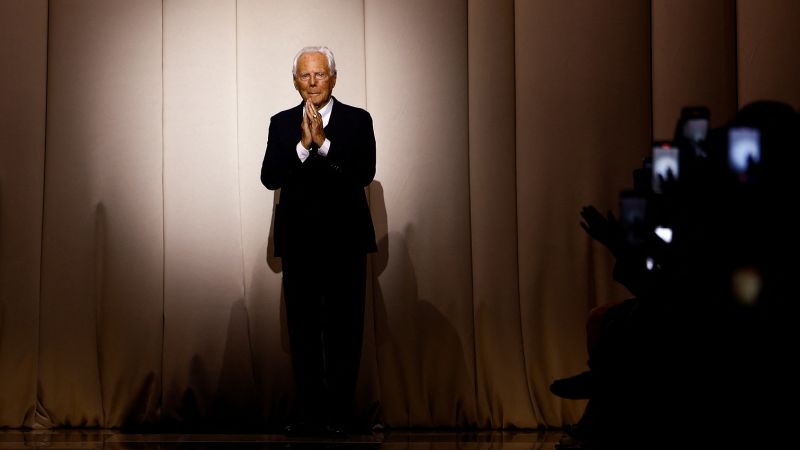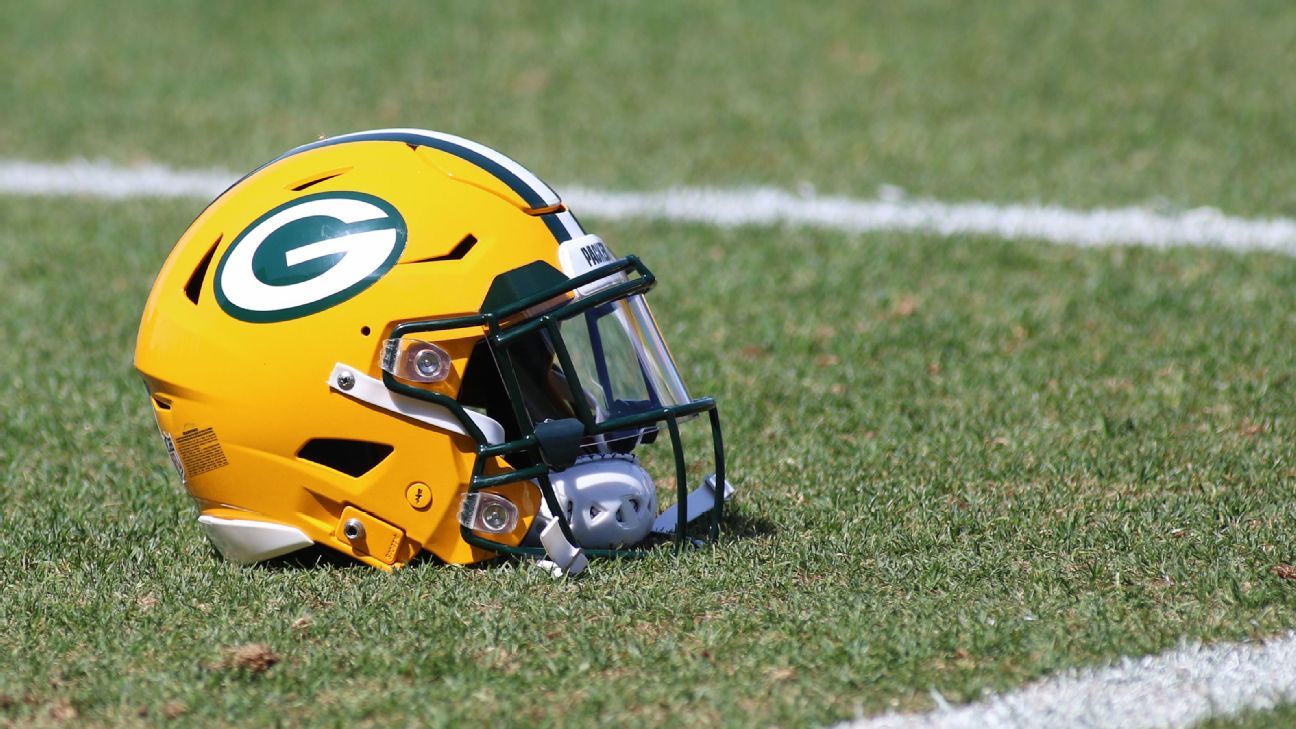Remembering Giorgio Armani: A Fashion Legend

Introduction
The fashion world is mourning the loss of a legend as Italian designer Giorgio Armani passed away at the age of 91. The Armani Group announced the news on Thursday, sending shockwaves through the industry and beyond.
Legacy in Fashion
Armani was one of the most influential and iconic figures in the fashion world. He revolutionized the industry with his clean, minimalistic designs and impeccable tailoring. His brand, known for its luxury and sophistication, has become a staple in the wardrobes of celebrities and fashion lovers alike. Armani's contributions to the fashion industry will undoubtedly be remembered for generations to come.
Innovative Business Strategies
Aside from his groundbreaking designs, Armani was also known for his innovative business strategies. He was one of the first designers to embrace the power of celebrity endorsements, collaborating with stars like Richard Gere and Beyoncé. He also ventured into the world of sports, designing uniforms for the Italian national soccer team and the English Premier League's Chelsea Football Club.
Final Reflections
The passing of Giorgio Armani is a great loss to the fashion world. His legacy will continue to inspire and shape the industry for years to come. His impact on fashion and business strategies will be deeply missed, but his influence will live on through his timeless designs
About the Organizations Mentioned
Armani Group
The Armani Group, founded in 1975 by Italian designer Giorgio Armani and his partner Sergio Galeotti, is a leading global luxury fashion house headquartered in Milan. It began with Giorgio Armani’s vision to create elegant, understated apparel, debuting with men’s and women’s ready-to-wear collections in 1976. The brand gained worldwide prominence in 1980 after actor Richard Gere wore Armani designs in *American Gigolo*, cementing its reputation for sophisticated soft tailoring and luxury[1][2][3]. Over the decades, Armani expanded its portfolio with multiple lines targeting various market segments. Emporio Armani was launched in 1981 to appeal to younger customers, while Armani Exchange (1988) targeted urban youth with more accessible pricing. Armani Casa (2000) marked the brand’s extension into luxury home furnishings and lifestyle products. The group also grew internationally, opening flagship stores across Asia, the Middle East, and the Americas, establishing itself as a major player in the global luxury fashion industry[1][4]. A distinctive feature of the Armani Group is its strong emphasis on independent control. Giorgio Armani retained full creative and strategic authority for nearly 50 years, avoiding mergers or sales that could dilute the brand’s identity. This autonomy allowed consistent quality and brand integrity across its diverse lines, including haute couture (Armani Privé), fragrances, cosmetics, eyewear, accessories, and more[1][4][5]. Key achievements include pioneering the "power suit" trend of the 1980s, dressing numerous Hollywood celebrities on red carpets, and maintaining financial resilience with revenues surpassing €2 billion annually. Despite pandemic-related disruptions in 2020, the Group rebounded strongly in subsequent years. Today, Armani remains a symbol of Italian craftsmanship, luxury, and cultural influence, continuing to innovate while honoring its heritage[1][5][6]. In sum, th
Italian National Soccer Team
The **Italian National Soccer Team**, also known as the *Azzurri*, is Italy's official men's football team, representing the country in international competitions. Established in 1910, the team quickly rose to prominence, becoming one of the most successful and storied football teams in history. Their iconic blue kit symbolizes their national identity. Italy has won the **FIFA World Cup four times** (1934, 1938, 1982, 2006), making them tied for the second-most World Cup victories alongside Germany, only behind Brazil[1][2]. Their early dominance in the 1930s under coach Vittorio Pozzo led to consecutive World Cup wins. After a post-war rebuilding phase, Italy captured the **European Championship twice** (1968, 2020), with notable golden eras in the late 1960s and early 1980s featuring legends like Gianni Rivera, Paolo Rossi, and later Roberto Baggio[3][5]. The 2006 World Cup victory in Germany marked a modern high point, characterized by exceptional defense led by captain Fabio Cannavaro and goalkeeper Gianluigi Buffon, conceding just two goals en route to beating France in a dramatic penalty shootout[2]. Italy also earned Olympic gold in 1936 and has placed highly in UEFA Nations League competitions, demonstrating sustained competitiveness. Key figures include goalkeeper Gianluigi Buffon, Italy’s most-capped player with 176 appearances, and top scorer Luigi Riva with 35 goals[2]. The team's tactical discipline, defensive strength, and ability to produce world-class talent have been hallmarks throughout its history. Today, the Italian National Soccer Team remains a symbol of footballing excellence, blending rich tradition with modern strategies. Their legacy continues to influence football tactics, player development, and the global sports business, making them a prominent subject of interest in both sporting and technological innovation contexts.
Chelsea Football Club
Chelsea Football Club, founded in 1905 and based in Fulham, London, is a premier English professional football club known for its rich history, significant achievements, and global influence in football and sports business[2][5]. Chelsea plays home matches at Stamford Bridge and has evolved into one of the wealthiest and most ambitious clubs worldwide, especially after Russian billionaire Roman Abramovich acquired the club in 2003, ushering in a new era of heavy investment and success[1]. Chelsea’s early successes include winning the First Division title in 1955 and securing the FA Cup in 1970, followed by their first European trophy, the UEFA Cup Winners’ Cup, in 1971[1]. Despite fluctuating fortunes and financial struggles through the 1980s, the club’s revival began in the 1990s with the arrival of star player-manager Ruud Gullit and continued with Abramovich’s takeover, which enabled the club to attract top talent and elite managers. Key achievements include six English top-flight titles (one pre-Premier League and five Premier League championships), eight FA Cups, and five League Cups domestically[2][3][5]. Internationally, Chelsea has won two UEFA Champions League titles (2012 and 2021), two UEFA Europa Leagues, two UEFA Cup Winners’ Cups, two UEFA Super Cups, one UEFA Conference League, and two FIFA Club World Cups, making them the only club to win all four main UEFA competitions[2][4][5]. Chelsea is also notable for its strong player legacy, with Ron Harris holding the record for appearances and Frank Lampard as the top goalscorer. Players like John Terry, Eden Hazard, and N'Golo Kanté have received prestigious PFA awards while at Chelsea[2]. The club’s success has been driven by strategic management, heavy investment in technology and scouting, and a focus on youth development, making it a fascinating case study in sports business and technology-driven football evolution.


















